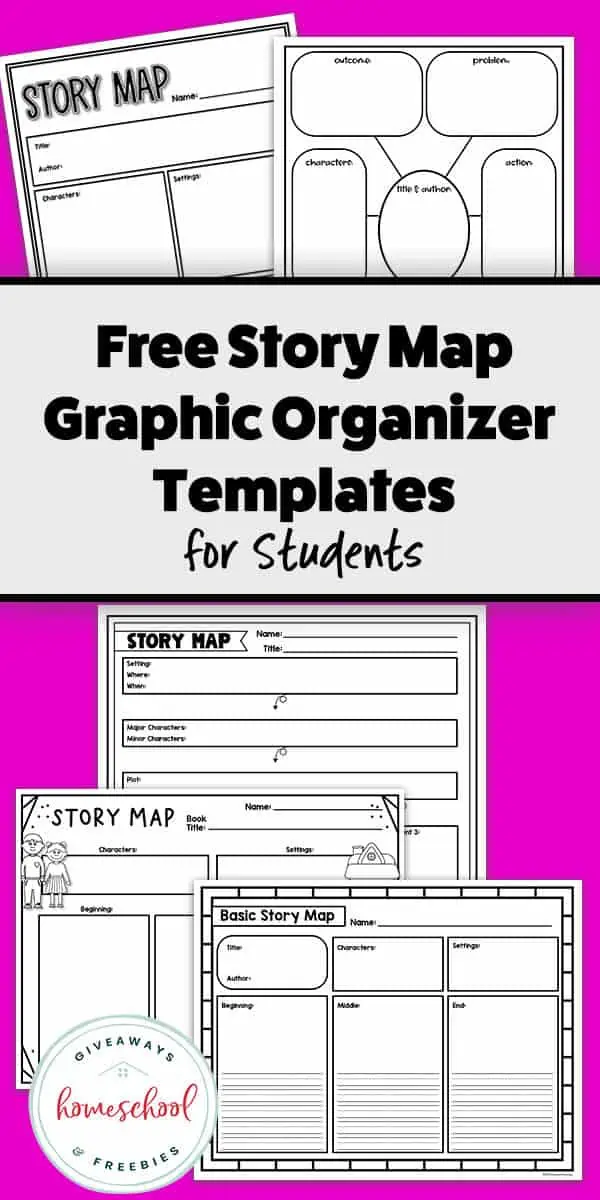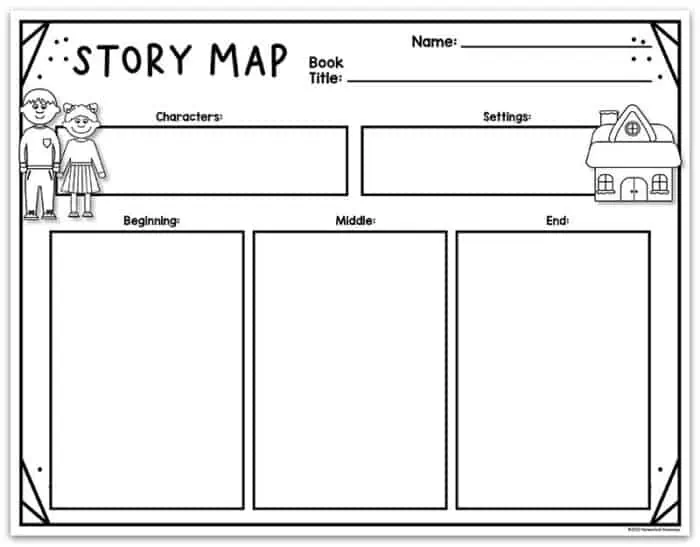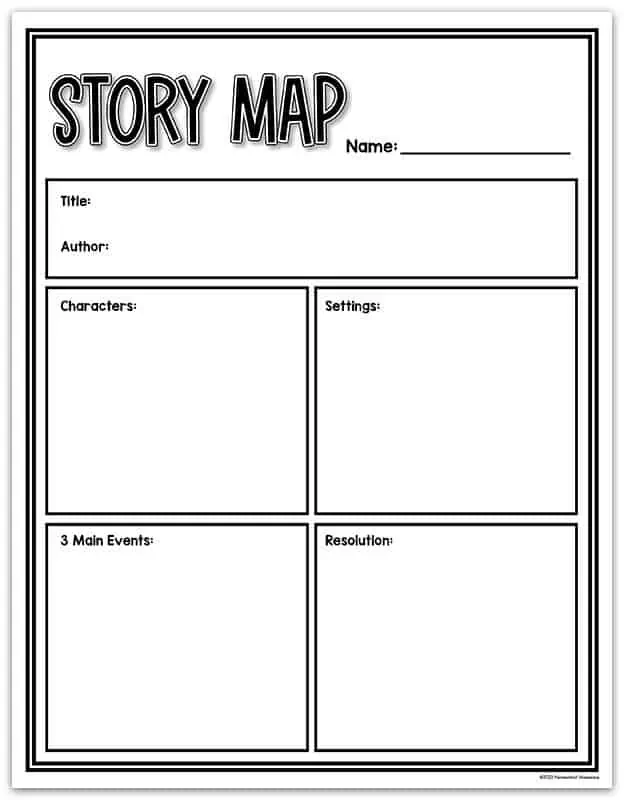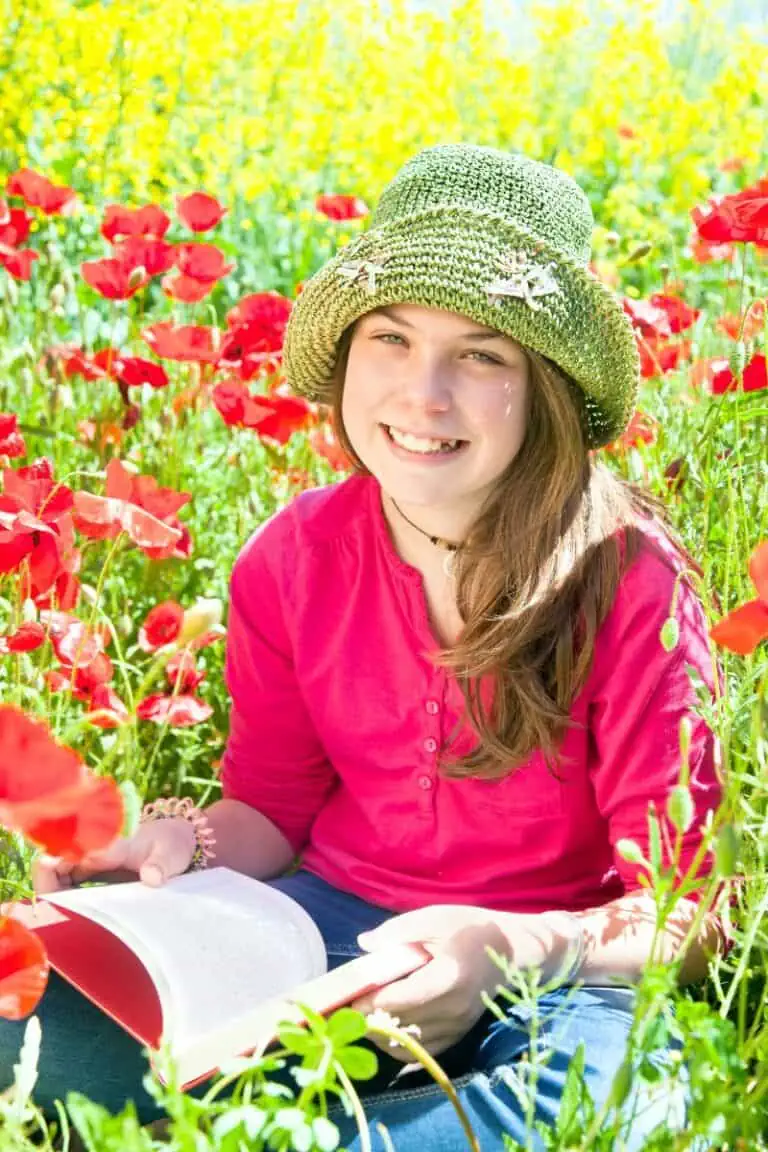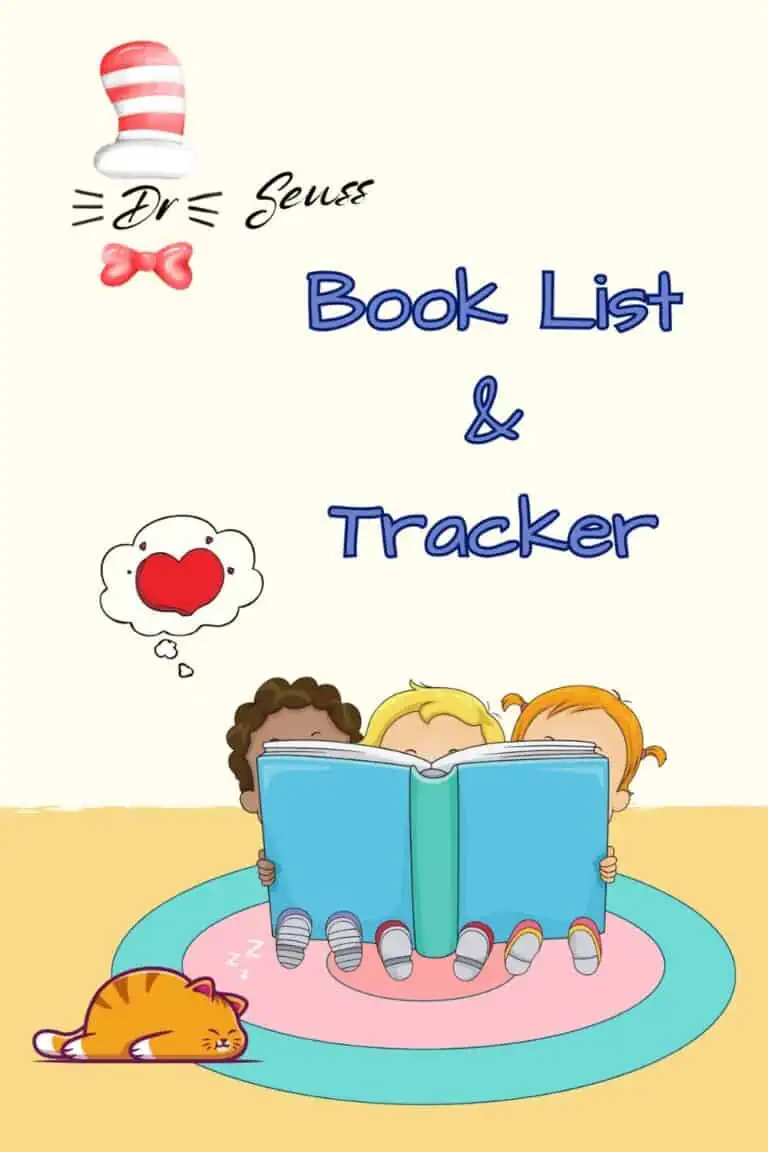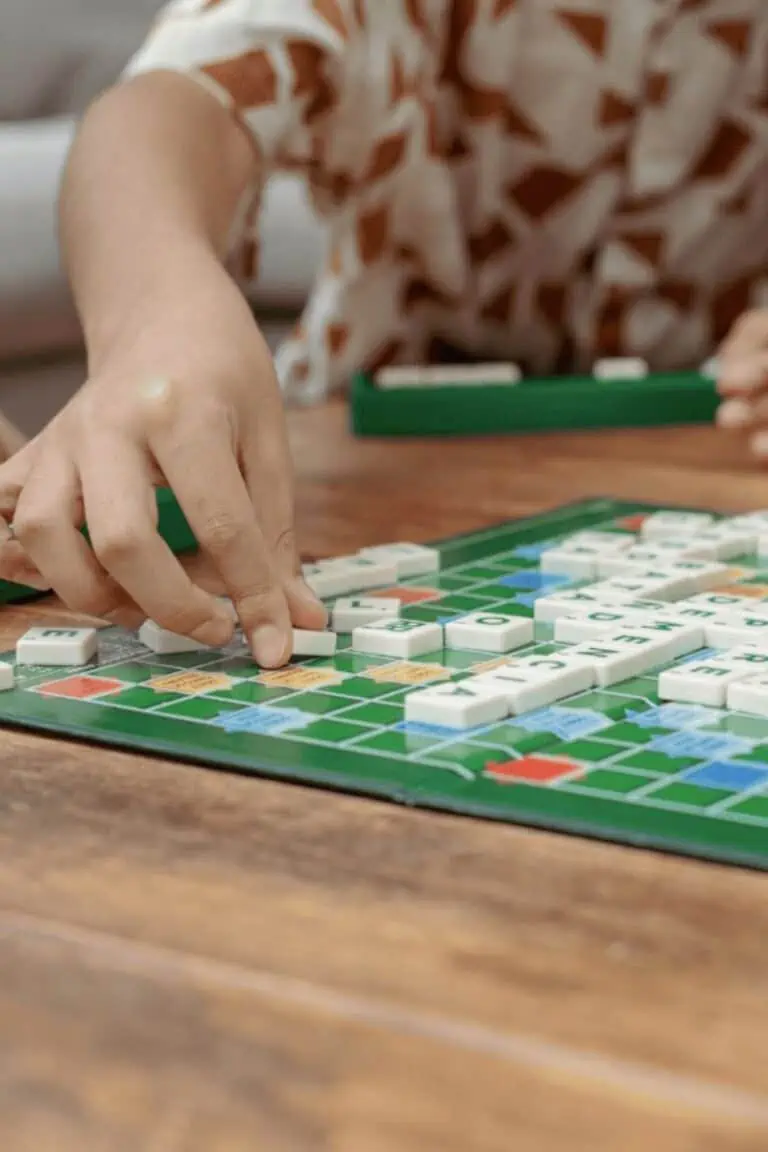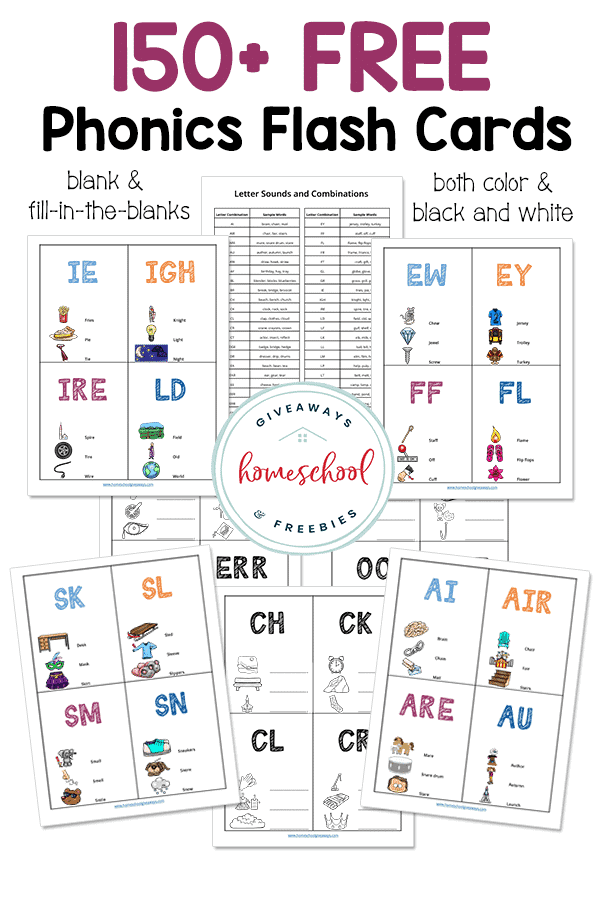Free Story Map Graphic Organizer Templates for Students
Published:
March 31, 2023

Contributor:
Sarah Shelton
Disclosure: This post may contain affiliate links, meaning if you decide to make a purchase via my links, I may earn a commission at no additional cost to you. See my disclosure for more info.
Are you looking for a great way to teach your students elements of literature? A story map graphic organizer is a wonderful visual aid that you can use when teaching about story elements with reading and writing.
What is a Story Map Graphic Organizer?
A story map graphic organizer helps students to organize and classify the information that they have read.
Students can use a story map template to help identify different story characters or settings. In addition, they are also helpful for determining the plot, point of view, theme, and other elements of a story. Story map templates can be used to map the beginning, middle, and end of a text as well.
A story map can be used as a planning tool for writing projects, help with writing a paragraph worksheet and creative writing assignments. It can help you figure out how to teach setting to your students.
Why use story maps?
Story maps are great teaching resources that assist students in prewriting and post reading activities. They are very useful for elementary school students to help them to organize information for writing projects.
There are many different types of story mats that can be used as a supplemental learning tool. You may also want to add sentence writing worksheets, story writing templates and punctuation practice worksheets to your English lesson plans.
A blank story map improves reading comprehension and helps identify elements of a story.
Benefits of Using a Story Map Graphic Organizer
Story map graphic organizers are great for building nonfiction reading comprehension skills and helping students when they are identifying essential elements of a story. T
hey are useful when compiling information needed to write a book report, so essentially they can be used as a book report template too.
In addition to story mapping you may want to learn how to write a paragraph for kids, or how to improve kids writing. Free graphic organizer templates are also a great help to building these skills as writing and reading go hand in hand.
Story Map Graphic Organizer Example
The story map template is a very basic one. This simple story map includes a place to write your name and a place to write the title of your favorite book and the author of the book.
Then you will write about the main characters in the book, the settings of the story, 3 main events that happened and the resolution.
Story Map Template Example #1
This blank story map will have your children log the title of the story or book, the setting, where and when, major and minor characters, the plot and 3 events that were part of the plot.
Story Map Graphic Organizer Example #2
This basic story map gives your children extra opportunities to practice their writing skills. They will record the title, author, characters and settings up the book.
Use the extra writing lines to describe the beginning, middle and end of the story. Use the larger blanks to draw a portion of the story.
Story Map Graphic Organizer Template Example #3
This free story map is great for early learners who are not writing well yet. They can use the large blocks to draw what happened in the beginning, middle and end.
Plot Diagram Graphic Organizer Example #4
Learn all about plot with this story map. After writing the title and author, your student will dig deeper into the characters, settings, 3 main events of the plot and the resolution. They can write or doodle out what happened.
Story Map Graphic Organizers Example #5
This venn diagram style story map is fun for kids who like to organize their thoughts in a graphic organizer style. They will write or draw the title and author, characters, action, setting, outcome and problem.
Organizing Details of a Story
Story maps provide a framework for students to organize the information that they read. Some templates are very basic, and others are more advanced. Students can fill in the templates as they read through the text or afterwards, adding various aspects involved in the story.
Essential Elements of a Story
The essential elements of a story are the characters, setting, problem, solution and rising action, falling action, climax and resolution of the problem.
Characters
The main character of a story is the lead, also called the protagonist. There is also a villain which is called the antagonist. As you read on you will see the character development build and begin to see character traits and qualities that are relatable to the reader.
Setting
The setting can be the time period or location such as Paris in the 1800s or even different locations like those found in fairy tales. It could be a setting related to an historical event.
A setting will also include important details of the specific setting that include how things look, feel, taste, smell and the sounds of the setting.
Problem
The problem is also sometimes called the conflict. There are many different types of conflict such as character vs. character, character vs. nature, character vs. self and character vs. society. You will usually see one theme that resonates through the problem in the story.
Solution and Rising Action
The solution and rising action are important elements of a story. These are usually the longest, they are the moments that build up to the climax, offering solutions for the characters to choose from as the story is building.
Climax
The climax is the big turning point in the story where the characters are finally getting the chance to act on what needs to happen. This is where the resolution of the problem usually begins.
Falling Action
This is where everything begins to calm down and things begin to start wrapping up. You will begin to see questions answered, and loose ends getting tied up and things sorted out.
Resolution of Problem
The resolution is always towards the end of a story. This is where everything is finally wrapped up, and you get the answers to any burning questions you may have had. You will also find out what is in store for the characters next.
How to Use Story Maps
- Identify the various elements of a story.
- After reading a text, students will fill in the story map template with the details.
- Students can fill in their story map organizer as they read or afterwards.
Story Map Graphic Organizer PDF Template
This printable story map graphic organizer has everything that your child needs to really understand and comprehend what a story is about. They will get practice with recognizing the title and author and writing that down at the top of every story map sheet in the packet.
- A Blank Story Map to record minor and major characters, the plot and 3 events that happened in the story.
- The Basic Story Map printable has spaces for drawing and double lines for beginning writers to describe the beginning, middle and end of the story.
- The Story Map Graphic Organizer has larger spaces to draw out or write about the characters, settings, beginning middle and end.
- Plot Diagram Story Map gives more direction on breaking down the plot by listing or drawing the characters, settings, 3 main events and the resolution.
- Venn Diagram Story Map will allow your kids to get super creative with laying out the characters, action, setting, outcome and problem in a fun format.
Download Story Map Graphic Organizer
Scroll down to download the free story map templates.

